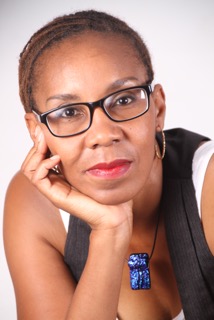Blessing Musariri
is a talented, adaptable writer born and bred in Harare, well known around the
continent. She has written award-winning children’s books, is a
well-established poet, writes genre novels for adults, and also includes
powerful short stories in her well-equipped arsenal. Her writing is published around the world and
translated into many languages. When I asked her what she prefers to be called
since in her bios she is sometimes called a poet, other times a children’s
writer. She said, “I prefer
‘writer’ because that is what I am, and that is what I do, I write. It doesn't matter what it is, if I feel an
inspiration, I write. I'm not limited to
one genre. I just like working with words.”
Blessing’s children’s books include: The Mystery of Rukodzi
(Hodder Education UK), Rufaro’s Day (Longman Zimbabwe), Going
Home: A Tree’s Story (Weaver Press, Harare), and The Adventures of Bakara
Blackbird (Mukuki N Nyota, Tanzania).
“Rufaro's Day did the best actually,” she told me “As it was a
first attempt by Longman to do a full colour children's reader at the
time. It was approved as a supplementary
reader by the CDU - curriculum development unit, and was put on the funding
list for schools so they actually did a second print of this book which made it
a two print run of 2000 copies in total. It won two National Arts Merit Awards
in 2000 for Best Picture Book 0-8 years and Best First Creative work in the
literary arts division. After that things went awry economically in the country
and that was that.”
Besides those two writing awards, Blessing has won the 2006 Zimbabwe
Book Publishers Association award for best book for Going Home: A Tree's Story and
a specially created second prize for a poem for the Susie Smith Memorial Prize
in 2009. She was selected last year by The African Poetry Book Fund in the USA
to be included in the 8 New Generation African
Poets, a collection of poetry chapbooks from eight up-and-coming African
poets. Her book Mitu’s Spice Tour is included in the box set. In 2014 she won
Cordite Books’ inaugural prize for detective novel with her manuscript Useful Knowledge for a World Class Detective. The prize came with a $1000 USD cheque and a publishing deal. The
hope is the book will be out soon.
Zimbabwe is said to have the highest literacy rate of any country in
Africa, but still Blessing’s story of being a writer there will sound so
familiar to many Batswana writers. “I think the biggest challenge is one of
economics. People love to read but books
are too expensive for the average person.
I feel that the local publishers stick to traditional methods to reach
audiences, and they don't work for our economic models so when they don't
work, they simply say there is no reading culture so we cannot keep
publishing creative writing as it makes no sense. This limits writers’ markets for their works
and forces us to look elsewhere for publishing opportunities (or to write
textbooks) , but internationally it's a tough playing field for the African
writer as here there tends to be only the desire for typically ‘African
stories’ by publishers because it's easy to sell what is already trending.
There are many, many talented African writers but it seems international
publishers have only enough space for a select few to push through to the top
every few years and the rest just shuffle along. If I had an idea how all this
could be solved I'm sure I would be the most financially solvent writer on the
continent right now. As it is, my
solution for myself is to get a day job and this is easier said than done.”
And in a perfect world, how does Blessing see her writing career in the
future? “In a perfect world I would have
a book out that will be studied in universities internationally as a work of
art and I would have won many international awards and prizes for it. I'm not greedy, if just one book could do
this for me I would be ecstatic. Of course having done this it would have to
naturally set me up for life so that after that I become a kind of King Midas
of literature and can do no wrong.”
Crossing fingers her dream comes true!
(This first appeared in my column It's All Write in Mmegi's 18 March 2016 issue)
